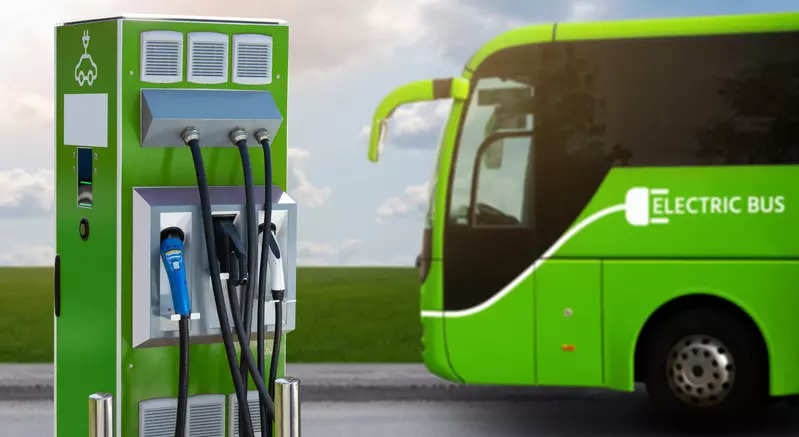
Nairobi: A Nairobi-based green mobility company on Wednesday unveiled an electric bus its inventors hope will encourage environmentally friendly commuting in a city where smog-belching minivans are a far more familiar sight.
The brightly painted bus pulled out into the notorious morning traffic in the city of nearly five million, which lacks a state-run transport network — even though it is the capital of East Africa’s economic powerhouse.
The city only has one charging station and electric vehicles remain a rarity on its roads, despite the government slashing taxes to try and spur their uptake.
But that has not deterred Roam, the Kenyan-Swedish company behind the 77-seat bus, which sees its debut as something of a milestone for Nairobi.
“This represents a shift towards better transport where we can have people ride in comfort and enjoy the ride with a clear conscience, because we are talking about zero emissions,” Roam’s project coordinator Dennis Wakaba told AFP.
The company says its flagship model is the first equipped to ply Nairobi’s rapid transport system, which provides priority lanes for busses to get around the city.
The electric bus has a top speed of 70 kilometres per hour (43 miles per hour) and a battery pack allowing it to travel 360 kilometres before requiring a recharge.
It takes just two hours to fully charge the battery.
Most commuter transport is privately operated in Nairobi and Roam said fares on the electric bus would rival those offered by its smoggier competitors.
– ‘Green city’ –
Eighty percent of Nairobi’s commuters use matatus — minivans that are poorly regulated and maintained, and known for hair-raising manoeuvres and trails of black smoke streaking behind battered chassis.
“For a long time Nairobi was known as the green city under the sun. That glory has been fading away, but we want to bring that life back,” said Wakaba.
“Nairobi has been seen as a leader of innovation and we see it as a good start point to deploy these buses.”
Kenya sources most of its energy from renewable resources and is seeking to cut CO2 emissions by 32 percent by 2030.
The transport sector accounts for 12 percent of Kenya’s emissions footprint — though that figure rises to 45 percent in Nairobi, according to government figures.
It is estimated that less than 500 of Kenya’s 3.5 million cars are electric, despite the government making them cheaper than ever to purchase.
Roam — which also manufactures electric safari vehicles and motorbikes — says it plans to roll out 100 electric buses over the next year.
Earlier this year another electric mobility startup, BasiGo, unveiled a 25-seater bus with a 250-kilometre range for Nairobi’s roads.
Paul Njokah, sitting behind the wheel of the new electric bus, said cleaner vehicles would go some way towards improving pollution in the city and its associated health problems.
“Kenya’s transport industry is sobering up. We will see more electric vehicles and civility on the road,” 60-year-old Njokah told AFP.



















Discussion about this post